Confederate Truths: Documents of the Confederate & Neo-Confederate Tradition from 1787 to the Present.
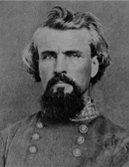

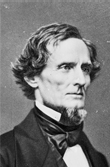
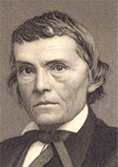

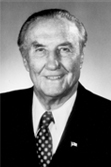
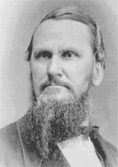
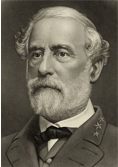
Alexander H. Stephens's prison diary with his views on white supremacy and slavery as a benevolent system.
Alexander H. Stephens's prison diary with his views on white supremacy and slavery as a benevolent system.
These texts show the continuity of Stephen's thinking on race and slavery after the Civil War and show that his infamous Cornerstone speech was no aberration.
The following extracts are sections from the Recollections of Alexander H. Stephens originally published by the Sunny South Publishing Company and Doubleday, Page & Company in 1910. It is his prison diary which he kept when he was incarcerated just after the Civil War from May 27 to October 12, 1865.
|
Chapter 5, page 198 – 199. As for slavery, or the relation of the Black race to the White, so far as concerns the pecuniary view of the subject, I would personally have been willing any day to give that up for recognition of the other great principle. Slavery, in the abstract, I ever abhorred and detested. Slavery in the concrete, being, as it existed with us, the subordination of an inferior to a superior race, was ever considered by me more in reference to its features as a social problem than one barely of capital and labour. In this view, it always presented itself to my mind as one of the greatest and most difficult questions to adjust upon the principles of reason and justice, to which the attention of statesmen, philosophers, philanthropists, and Christians was ever directed. My judgment and convictions, after much thought and reflection, were that a proper subordination of the inferior race to the superior race was the natural and normal condition of the former in relation to the latter. I thought the assignment of that position in the structure of society to the African race amongst us was the best for both races and in accordance with the ordinance of the Creator as manifested in His works. In His Word, given through his Inspired Oracles, there is nothing against this view, but much which clearly sanctions it. Our system was not perfect, as what human systems are, ever were, or ever will be? Many things connected with it not only did not meet my approval but excited my strongest aversion and deepest sympathy and commiseration. The same I may say of many things connected with the best institutions in the best regulated communities in which I have ever had the good or bad fortune to cast my lot. Whenever I have been up North or out in the far West, as well as down in the far South, I have met with many things in the workings of the best systems which caused me to feel if not to exclaim: Alas! What crowds in every land Are wretched and forlorn. Makes countless thousands mourn. If our system on the subject of the proper relations between the two races was not the best for both, or could not be made the best for both, looking to the progress and advancement of both in civilization, physically, morally, and intellectually; then I ever held it to be radically wrong, and freely admitted that it ought to be abolished, and some other system adopted that would allow the accomplishment of those ends. All government, I ever maintained, should be so constructed. ¯ ¯¯¯¯¯¯ Chapter 6, page 207-8. I see in the Boston Herald that there was a riot yesterday in Washington, D.C., between Federal soldiers and Negroes; attack by the former upon the latter; 150 or 200 soldiers engaged. The military, or provost, guard was called on to suppress it. Several were wounded and some killed on both sides. Is this but the beginning of deplorable conflicts hereafter to be enacted between the races, until one or the other is extinguished? Sad forebodings haunt me. I apprehend intestine strifes, riots, bloodshed, wars of the most furious character, springing form antipathies of castes and races. Equality does not exist between blacks and whites. The one race is by nature inferior in many respects, physically and mentally to the other. This should be received as a fixed invincible fact in all dealings with the subject. It is useless to war against the decrees of nature in attempting to make things equal which the Creator has made unequal; the wise, humane, and philosophic statesman will deal with facts as he finds them. In the new order of things, I shall hope and, if permitted, strive, for the best; yet I cannot divest myself of forebodings of many evils. Whether there will be greater ones than these freely admitted to be incident to the former system, time alone will determined. ¯¯¯¯¯¯¯ From Chapter 8, page 249, from a section titled, "Somewhat of a Fancy Sketch and Yet Not Altogether Fancy." Alexander is the Prisoner. Visitant. Why, what can be worse? The States are subjugated, their governments overthrown, their whole social system and internal policy uprooted and demolished, and most of their public men in prison, as you are, or in exile. How can matters be worse? Prisoner. In many ways: internal strife, insurrection, and wars between races, ending in the extermination of one of the two now constituting the South's population, would make conditions, bad as they are, infinitely worse. Visitant. What, in your opinion, is to be the remedy or end? Prisoner. It is one thing to see threatening evils and a different one to prescribe measures for ending them, or to prejudge the extent to which they may go. You may remember what I said to Bishop Elliot * last year when we dined with him at Mr. Standard's. I told him that in my judgment abolition was the moving spirit of the war at the North; I did not think the war, end when or how it might, would leave slavery as it found it; while I looked on the institution recognized amongst us by our laws (which, so far as the spirit of the law was concerned, was only subordination of an inferior to a superior race) as sanctioned by God, yet I thought great wrongs had been perpetrated under it; as with all human institutions in accordance with the sanction of the Creator, there were reciprocal duties and obligations; when these were faithfully performed on both sides, reciprocal and mutual benefits were the results: in our system, the superior race had looked too much to the benefits received from the relation; and too little to its obligation to the inferior, and the benefits to which that inferior was entitled; the moral and intellectual culture of the inferior race, to which it was entitled to the extent of its capacity and condition, had been greatly neglected: the Negro had been made to perform his part of the obligation while the white man had failed to fully perform his: this was, in my judgment, one of the great sins for which our people were brought to trial. The status of the Negro would not be left by war where war found it. But if the principles of President Lincoln's Emancipation Proclamation?the ultimate policy therein indicated of attempting to establish perfect political and social equality between the races?should be carried out to its final results, it would end in the exterminating or driving from the county of one or the other of the races. That policy, I regarded as against nature, against the ordinances of God; it never could be practically worked. This and much more on the same line I said to the bishop at that time; I repeat the views then expressed. If the principals of the Radicals, who are determined on the leveling system of making the black man in the South equal politically and socially to the white, are to be carried out, I see no end to it all but the ultimate extermination of one or the other of the races, so unfortunately, to both in this view, interspersed with each other. Will events take this course? I cannot answer; that is why I cannot say whether we have reached the darkest hour in our troubles. There are other courses events might take which could possibly bring about a better state of things for both races than existed under our slave system, yet not better than might have been attained under it with wise and philanthropic legislation. The long night of darkness has no promising dawn as yet to my vision. * Stephen Elliot, first Protestant Episcopal Bishop of Georgia. ¯¯¯¯¯¯¯ Chapter 26, pp. 515. I see in the New York Times an abstract of a sermon by Henry Ward Beecher, which is rather remarkable. He freely admits all I ever maintained about the inferiority of the Negro race to the white. The only real difference in our views concerns the system by which the influence of the superior race can be best exerted upon the inferior for the latter's advantage. Subordination of the inferior, I thought necessary. Hence, the "Cornerstone" idea in my Savannah speech. |